My Journey into Mindfulness
My first encounter with mindfulness was back in 2011, when I was studying in Canada. Time at yoga classes by Nina introduced me to meditation, and I remember sitting quietly, focusing on my breath for the very first time. At that point, I didn’t fully understand what mindfulness was, but something about the stillness stayed with me.
Years later, in 2018, I went through a painful breakup. It was one of those moments when life feels overwhelming, and I was searching for a way to release the heaviness in my heart. That’s when mindfulness became more than just a concept – it became a tool for healing. Through meditation, reading, and practice, I found a way to face the pain instead of running away from it.
Since then, mindfulness has become a daily practice in my life. It helps me stay grounded during busy workdays, present in my relationships, and resilient through challenges.
And along this journey, books have been some of my greatest teachers. In this article, I want to share five of the most powerful mindfulness books that have guided me and millions of others around the world. Whether you’re a student juggling studies, a young professional facing work stress, or simply someone looking for more peace, these books can offer you practical wisdom and calm.
1. The Miracle of Mindfulness by Thích Nhất Hạnh
Few books on mindfulness are as simple and profound as The Miracle of Mindfulness. Written by Vietnamese Zen master Thích Nhất Hạnh, it is often considered the best entry point for anyone curious about meditation.
Key Lessons
-
Mindfulness is everywhere. Thích Nhất Hạnh reminds us that meditation doesn’t only happen on a cushion. Washing dishes, drinking tea, walking down the street—all are opportunities to be fully present.
-
Breathing as an anchor. One simple practice: “Breathing in, I know I am breathing in. Breathing out, I know I am breathing out.” This small act instantly brings you into the now.
-
Slowing down brings joy. Instead of rushing through tasks, we can savor them. Even chores become moments of peace.
Why It’s Powerful
This book is about practice. Many readers describe it as an invitation to live with more gratitude and presence. For me personally, it changed how I approached daily routines: I stopped hurrying and started enjoying.
If you’ve never read a mindfulness book before, start here.
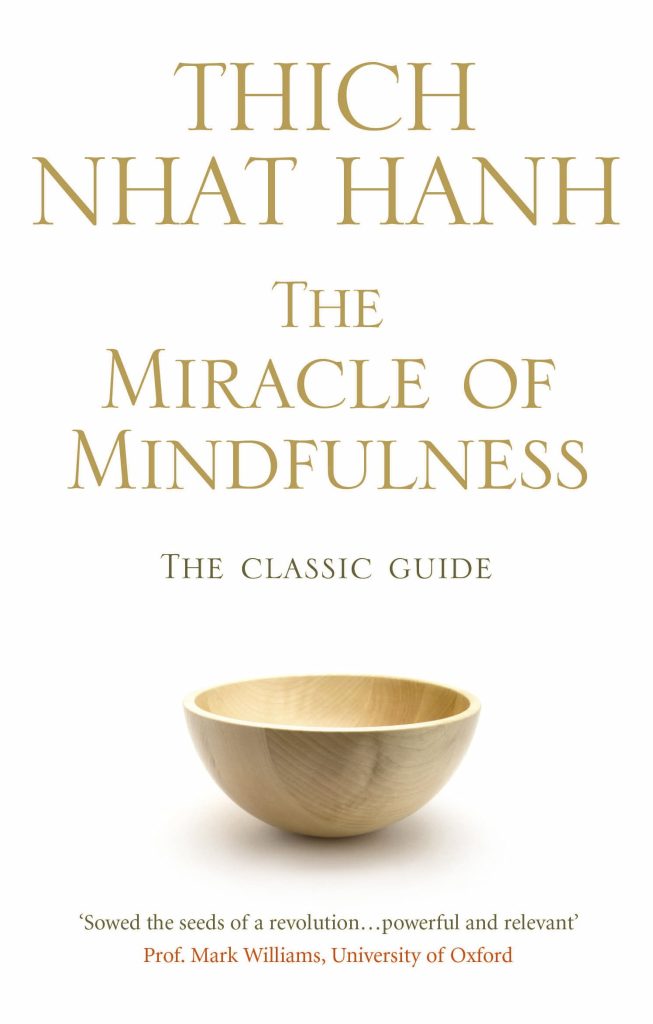
2. Wherever You Go, There You Are by Jon Kabat-Zinn
Jon Kabat-Zinn is a pioneer of modern mindfulness. His Mindfulness-Based Stress Reduction (MBSR) program has been taught worldwide and backed by decades of scientific research.
Key Lessons
-
You can’t escape yourself. The title says it all: no matter where you go, you bring yourself with you. Instead of distracting ourselves, we learn to sit with who we are.
-
Mindfulness is non-judgmental awareness. You don’t need to “clear your mind.” You just need to notice the present, kindly.
-
Meditation is for everyone. You don’t have to be a monk or a yogi. Everyday people—students, teachers, parents—can practice mindfulness.
Why It’s Powerful
This book is beautifully accessible. Kabat-Zinn writes with warmth and clarity, making mindfulness approachable even for complete beginners.
For students overwhelmed by exams or professionals stressed about deadlines, this book is a reminder that peace is not found somewhere else – it’s found right here, right now.
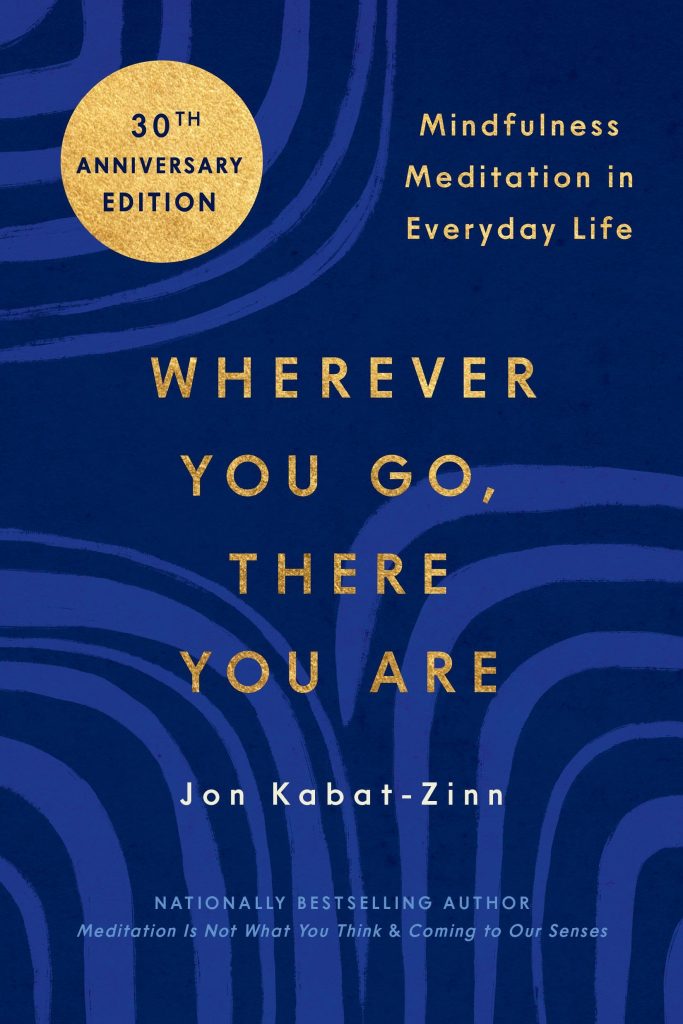
3. The Power of Now by Eckhart Tolle
When The Power of Now was first published, it quickly became a global bestseller, translated into dozens of languages. Its message is simple but profound: most of our suffering comes from resisting the present moment.
Key Lessons
-
The present is all you ever have. Dwelling on the past or worrying about the future takes you away from life itself.
-
You are not your thoughts. Thoughts come and go, like clouds. Observing them rather than identifying with them gives you freedom.
-
Acceptance brings peace. By embracing what is happening right now, instead of wishing it away, we reduce suffering.
Why It’s Powerful
Tolle’s writing is spiritual and poetic. Some chapters may feel abstract, but many readers describe life-changing “aha” moments when they finally grasp the idea that they are not defined by their thoughts.
For overthinkers, worriers, or perfectionists, this book can feel like a breath of fresh air.
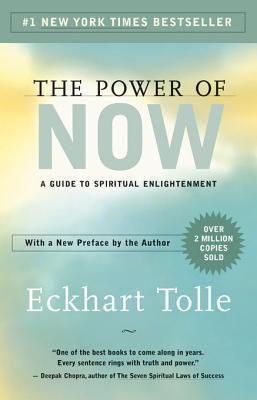
4. Full Catastrophe Living by Jon Kabat-Zinn
While Wherever You Go, There You Are is a gentle introduction, Full Catastrophe Living is the comprehensive manual. At over 600 pages, it’s dense—but worth it.
Key Lessons
-
Life includes everything. The title reflects that life is messy and unpredictable. Mindfulness doesn’t remove difficulties – it helps us live fully with them.
-
Science supports mindfulness. The MBSR program has been proven to help with chronic pain, anxiety, and stress.
-
The body scan practice. This meditation brings attention slowly through each part of the body, cultivating awareness and relaxation.
Why It’s Powerful
This book is ideal for anyone who wants a structured approach. It blends science with practice, offering detailed exercises and real-life applications.
For young professionals facing stress or health issues, this book shows that mindfulness is not just philosophy—it’s medicine for both body and mind.
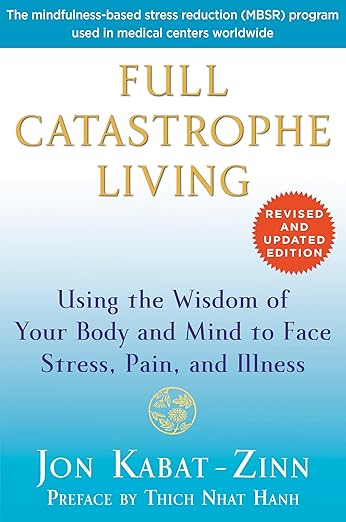
5. Waking Up: A Guide to Spirituality Without Religion by Sam Harris
Sam Harris, a neuroscientist and philosopher, offers a unique take: mindfulness without spiritual tradition.
Key Lessons
-
A secular approach. You don’t need to believe in Buddhism or religion to benefit from mindfulness.
-
The illusion of self. The “I” we cling to is less solid than we think. Observing awareness itself helps us let go.
-
The science of meditation. Harris explains how mindfulness changes the brain and why it works.
Why It’s Powerful
This book is perfect for skeptics, scientists, or anyone who prefers rational explanations. It bridges the gap between spirituality and science, making mindfulness accessible to a modern audience.
For students in STEM or professionals in fast-paced environments, Waking Up is a refreshing entry point.
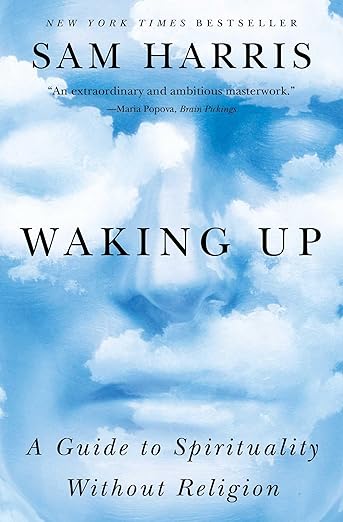
How These Books Work Together
While each of these books stands on its own, together they form a complete path:
-
Beginner’s Guide: The Miracle of Mindfulness and Wherever You Go, There You Are teach you simple practices.
-
Shift in Perspective: The Power of Now helps you see life differently.
-
Deep Dive: Full Catastrophe Living gives you structure and science.
-
Modern Lens: Waking Up shows mindfulness through neuroscience.
This combination makes mindfulness practical, inspiring, and evidence-based.
Practical Tips for Reading Mindfulness Books
Reading about mindfulness is helpful, but the real transformation comes from practice. Here are a few tips:
-
Read slowly. These books are not meant to be rushed. Take a chapter, reflect, and try an exercise.
-
Practice daily. Even 5 minutes of conscious breathing can shift your day.
-
Start small. Don’t wait for the perfect retreat or environment. Mindfulness can happen while brushing your teeth or walking to class.
-
Journal your reflections. Writing down insights from each book helps deepen learning.
-
Revisit often. These books reveal new wisdom each time you return to them.
The Present Is Always Here
When I look back, I realize my mindfulness journey began in 2011 with that first meditation session in Canada. At the time, I didn’t know it would become such an important part of my life. Then in 2018, during one of the most painful seasons I had ever faced, mindfulness gave me the strength to sit with heartbreak, process it, and eventually let it go.
Since then, it has become my daily anchor. No matter how busy or uncertain life feels, a few mindful breaths remind me I am right here, right now – and that is enough.
These five books continue to guide me on this path. Some offer practical exercises, others shift my perspective, and a few have become companions I revisit again and again. For students, young professionals, or anyone simply looking for peace of mind, they are wonderful places to begin.
So, which of these books speaks to you most? Perhaps you’ll start with The Miracle of Mindfulness for its simplicity, or The Power of Now if you’re ready for a perspective shift.
Whichever you choose, I hope these books not only inspire you but also remind you of this truth: the present moment is always available. And it can become the most peaceful place you’ll ever know.

